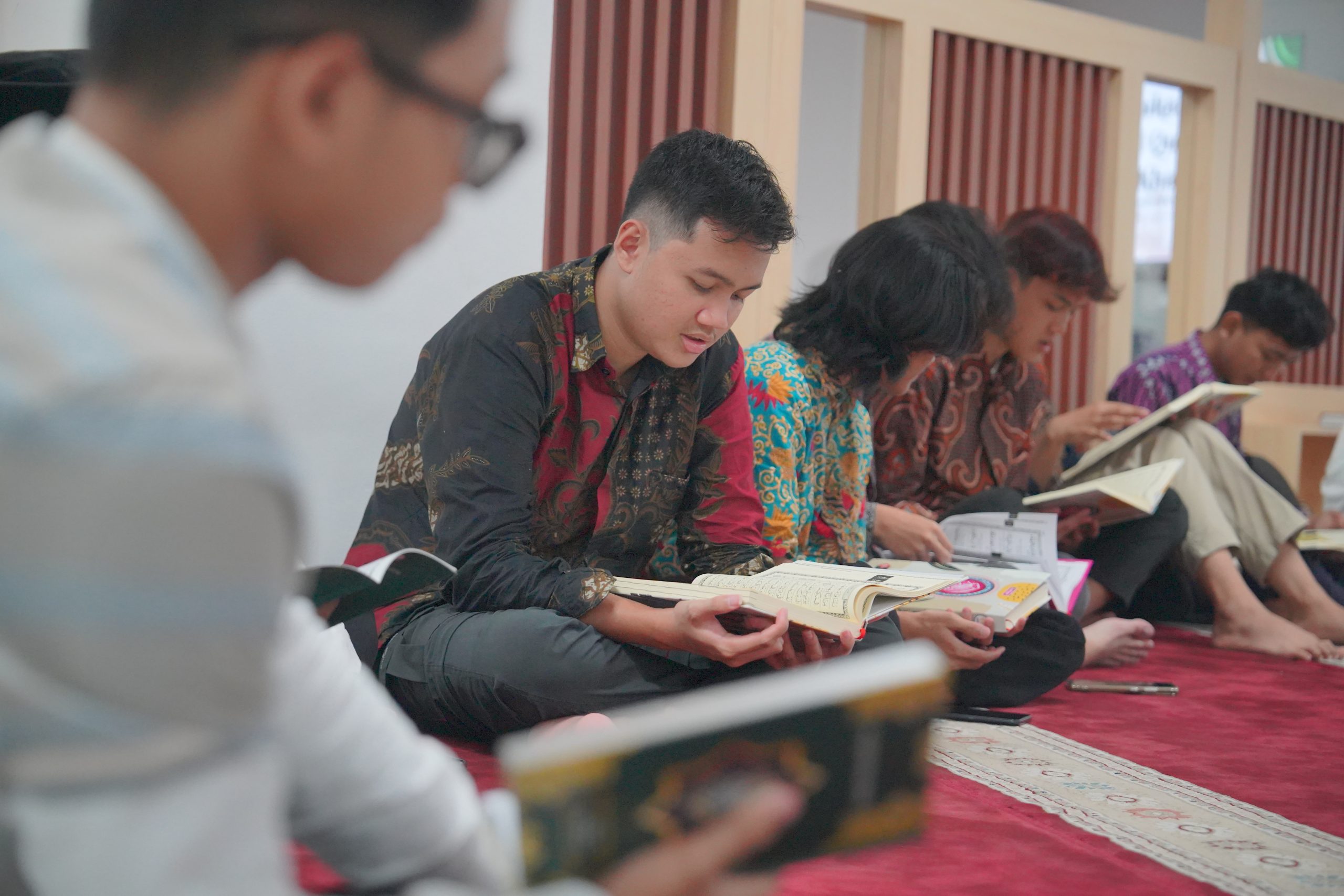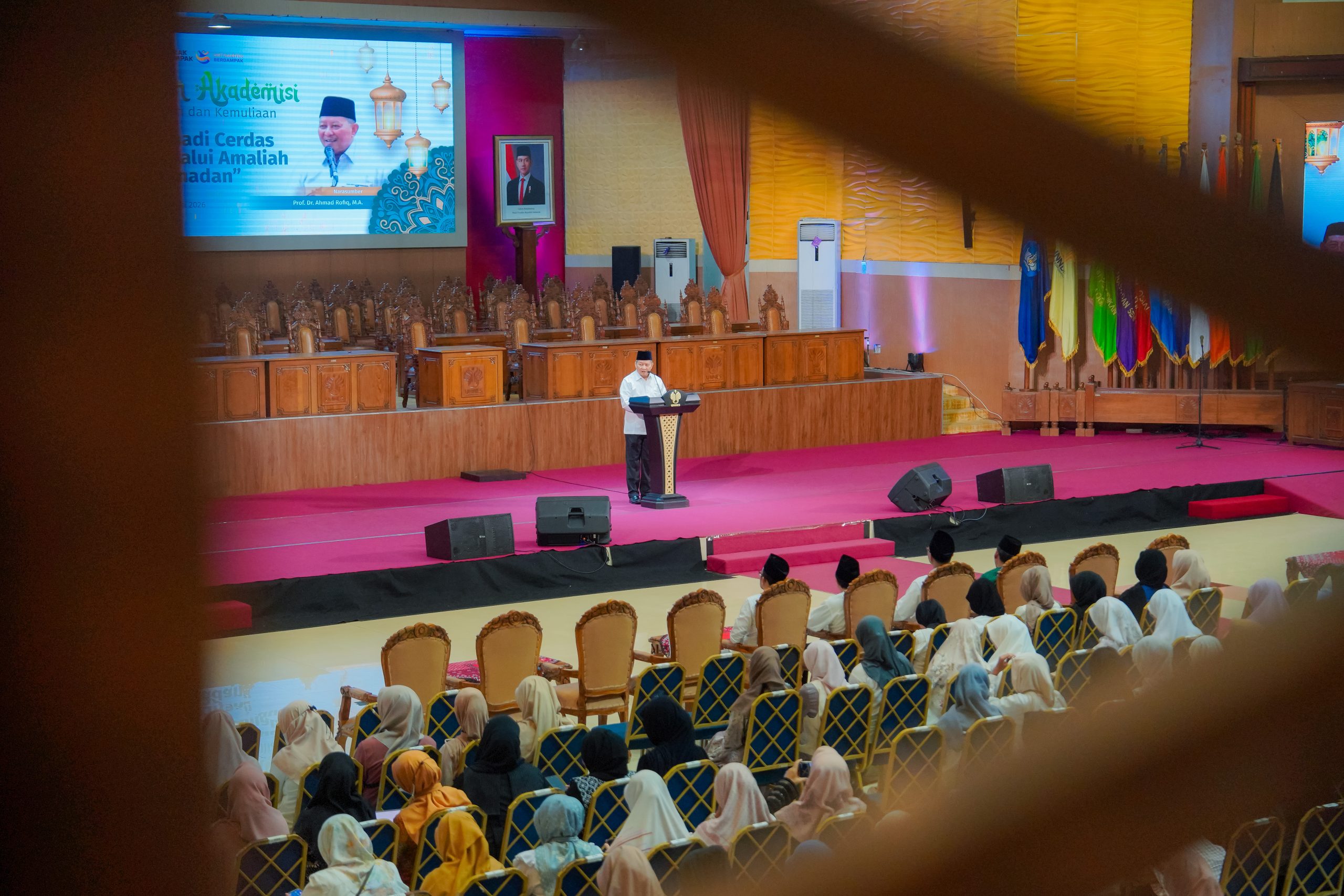Ohoho…. sementara aku melihatmu bersenyum
Dengan mesin industri yang begitu kemarau di bahumu
Rupa-rupanya jemarimu lebih letih melangkah pada tongsis, line,
Instagram, hektogram dan apalah-apalahnya
Membuatmu tampak makin kekinian
Dan aku melihatmu menyusu pada pematang qwerty dan layar sentuh itu.
Hingga aku menemu dirimu
Serupa film tanpa terjemah, gagah antara entah Indonesia atau Nusantara
Mengeliling pada sertifikasi, investasi tak ubahnya kontrasepsi
Pelindung pasa soal-soal nasib yang kau cipta sendiri
Penggalan bait puisi tersebut dibacakan oleh Himas Nur mahasiswa Pendidikan Bahasa dan Sastra Indonesia pada pembukaan Seminar Nasional “Nasib Mata Pelajaran Bahasa Indonesia dalam Kurikulum Nasional (Pasca-Kurikulum 2013)”, di Gedung Dekanat Fakultas Bahasa dan Seni (FBS), Universitas Negeri Semarang (Unnes), Minggu (6/8).
Seminar yang diselenggarakan oleh Jurusan Bahasa dan Sastra Indonesia bekerjasama dengan Prodi Pendidikan Bahasa Indonesia PPs Unnes dan Balai Bahasa Provinsi Jawa Tengah menghadirkan tiga narasumber Prof Dr Djoko Saryono MPd dari Universitas Negeri Malang, Prof Dr Faruk HT dari Universitas Gadjah Mada Yogyakarta, dan Prof Dr Suherli Kusuma MPd dari Unswagati Cirebon. Drs Pardi MHum, Kepala Balai Bahasa Provinsi Jateng bertindak sebagai moderator dalam seminar yang dihadiri oleh 300 peserta.
Prof Dr Faruk sebagai pemateri pertama mengungkapkan, kurikulum pelajaran bahasa Indonesia mempunyai kedudukan yang sangat strategis dalam tidak hanya pembangunan nasionalisme Indonesia, melainkan bahkan kebudayaan Indonesia karena sifat legalnya, ekstensitas dan intensitas penggunaannya. Karena itu, kebijakan mengenainya benar-benar harus mereka yang secara akademis benar-benar matang dan berwawasan luas, baik dari segi ilmu pendidikan maupun ilmu kebahasaan dan kesastraan. Hanya dengan cara demikian, kesalahan seperti yang terjadi dalam kebijakan kurikulum 2013 ini dapat dihindari.
Prof Djoko Saryono mengupas kendala-kendala yang dihadapi dalam proses implementasi konstruksi kebijakan kurikulum Mata Pelajaran Bahasa Indonesia yang dihajatkan. Menurutnya terdapat tiga kendala utama yang dihadapi. Pertama, selalu terdapat ketidakserasian, ketidaksambungan atau tidak ada harmonisasi dan sinergi antara konstruksi kebijakan dan implementasi kebijakan. Kedua, guru sebagai implementor kebijakan kurikulum mengalami penggerusan, pengikisan, pengekangan dan atau pembelengguan birokratis-administratif, malah penafian profesionalitas oleh birokrasi-administrasi pendidikan sehingga di dalam diri mereka tidak tumbuh dan berkembang otonomi dan etos profesi yang kuat. ketiga, lingkungan dan suasana pembelajaran, pengajaran, dan pemelajaran bahasa dan sastra Indonesia selalu kurang menguntungkan.
Pemateri ketiga, Prof Suherli Kusuma menegaskan pada penyempuranaan kurikulum diterapkan pada pendekatan pembelajaran menjadi komunikatif-integrated berorientasi genre teks. Berbagai pendukung implementasi kurikulum dipersiapkan dalam bentuk uji publik, sosialisasi, pelatihan pendidik, penyediaan sarana buku teks pelajaran dan buku panduan pendidik, bahkan buku pengayaan dan referensi.



